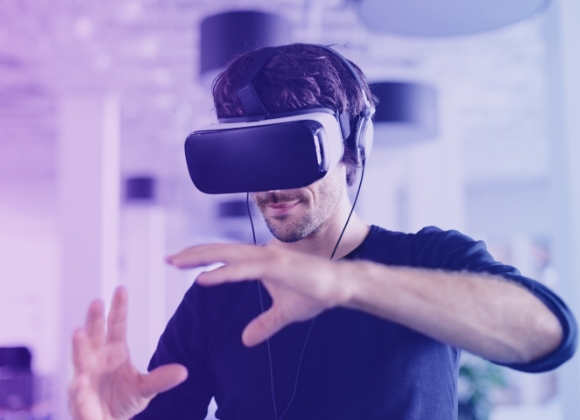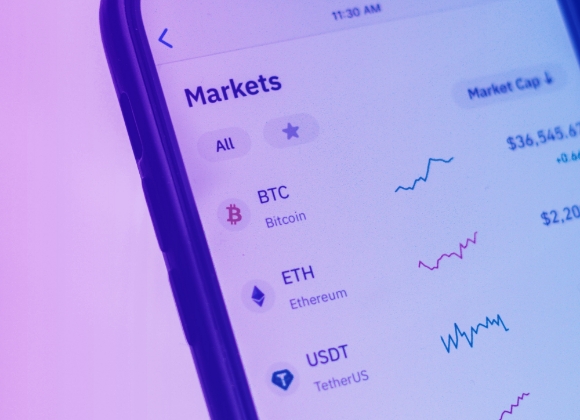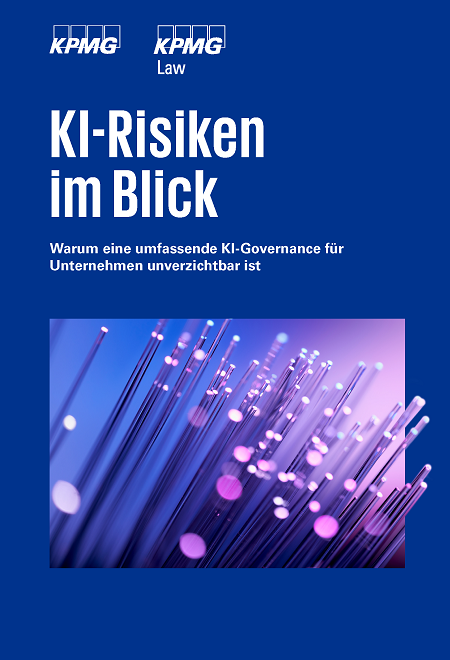Consulting focus
-
Coins, tokens, NFT, cryptocurrencies, tokenization
Coins and tokens are the digital embodiment of certain rights and obligations assigned to them. They are used as part of old or new business models to make it easier for their users to use their credentials and make them tradable.
In this way, assets that can only be transferred under special requirements, such as real estate, can be embodied in their economic content in a token – tokenized – and thus made tradable via modern distributed ledger technology (DLT). So-called non-fungible tokens (NFT) are used to virtually assign certain objects uniquely as indivisible tokens – such as certain art objects. In addition, they may embody any rights and/or obligations that may be relevant in the context of a business model.
We provide comprehensive legal advice on the structuring of your tokens or coins and support you in the implementation of your project, be it an Initial Coin Offering (ICO), a Security Token Offering (STO) with the prospectus requirements and BaFin approvals that may be required, or even just the issuance of a regulation-free utility token.
-
Digital Participation
Digital participation is about virtual participation in societies. Direct participation, for example in a stock corporation or in a limited liability company, is currently not possible virtually by means of tokens in Germany. For the liability-limiting effect of a limited partner position in a KG, entry in the commercial register is required. In this respect, only tokenization, i.e. indirect, economic participation, can currently be considered for virtual company participation.
From a company’s perspective, this can be an interesting way to raise money. By issuing tokens, it may be possible to tap into tech-savvy investor groups that would not be accessible with conventional financial instruments.
We support you in the legal and regulatory structuring and implementation as well as the documentation of tokenizations.
For business and tax aspects, we involve the relevant teams of experts from KPMG.
-
Digital Asset Management
Asset management is becoming increasingly digitalized and automated in the context. Based on Digital Ledger Technology (DL)/Blockchain and related smart contracts, new opportunities for automated asset management may emerge. Last but not least, these new paths must also be designed in a way that is legally and regulatory sound.
From the investor side, the best possible asset management performance with low fees is desirable. On the part of the asset managers, efficiencies are to be raised and margins increased. Automation can be a starting point here. Furthermore, the quality of asset management is to be increased. This can be achieved through automated analysis and trading parameters.
We support you in the legal and regulatory structuring of new investment strategies, also involving tokens/coins and DLT/blockchain, and assist you in the implementation and required documentation preparation up to any BaFin requests and approvals.
-
Virtual reality
Metaversum (Metaverse) describes a virtual 3-D space that describes the interaction of virtual and physical reality. The main aspect of this is to unite the different action spaces of the Internet into one reality.
The legal challenge, especially in the case of transnational applications, is to meet the requirements of the individual legal areas in the respective countries and to design the respective application intended for the metaverse in a legally compliant manner accordingly.
We support you in overcoming these challenges on a national level as well as on an international level with our Global Network and develop a customized solution for your planned application.
-
Digital Real Estate
Companies, private individuals or public authorities would like to present themselves in the Metaverse in a representative (virtual) building, with an address where they can be found, or would like to gather suppliers, customers, consultants or other representatives under this roof.
But how can you acquire a house as a digital representation in a suitable environment? You ask yourself: Who are my contractual partners, which contracts have to be concluded?
We identify the objective you have in acquiring a digital property and work with you to define the requirements for the building that will represent you in the metaverse or become the central location of your digital business. Then we will support you in selecting suitable technology partners and advise you on the drafting of contracts when setting up your representative office in a virtual environment.
We support you with our expertise in IP and data protection law in drafting contracts, both in the initial phase of acquiring and shaping a digital asset and during the subsequent years of operating your virtual representative office.
-
Digital Twins
Digital twins can be used in a digital representation of reality. Digital twins are virtual representations of real products or workflows. By using digital twins, accurate predictive models and simulations can be created. By linking with IoT applications, Digital Twins can also be used to monitor the condition of production equipment and make adjustments without the user having to be physically located at the site of the production equipment.
By using Digital Twins, numerous processes can be monitored vividly without having to be on site yourself. Production equipment can also be controlled and monitored remotely. New business and production processes can be simulated using the Digital Twin without taking real capacity and risking damage to real assets.
If you are looking for innovative and more efficient ways to monitor and control production and business processes, questions of a contractual nature arise, such as liability and service levels. On the other hand, the possibility of using accruing data from business processes and machines is an elementary prerequisite for the use of digital twins. The possibility of using this data must be legally secured.
-
Avatars
Avatars are virtual figures of the users:inside of online games and platforms. The creation of the avatar can already attain the level of creation and thus be protected by copyright. In addition, there are questions of liability law, for example in the sale of virtual objects, and even criminal activities by avatars, as well as the possible protection of their virtual personality.
The legal framework for the protection of avatars, their actions and interaction with virtual assets is rudimentary. Traditional rights such as property and personal rights can only be applied to a very limited extent at best. Conversely, however, these are not lawless spaces, so that both providers and users are dependent on a legal framework, especially in the context of an international clientele.
In order to master the challenges involved, it is advisable to determine the relevance of the current status quo and the interests to be prioritized. Prior to any significant use or exploitation of avatars, a forward-looking determination of significance should be made. The economic and sometimes “personal” values should be proactively protected.
We support you from the very beginning in identifying the relevant legal framework, determining the subject areas to be regulated and adapting them to your interests and business model.
Based on this, we structure your project in the respective national or international legal context and prepare contractual documents, for example in the form of terms of use and data protection provisions. -
Virtual business models
The digitization of process flows can lead from new application possibilities to the development of virtual business models, such as a community of a user group organized as a Decentralised Autonomous Organisation (DAO).
But individual process flows, for example in banking, insurance or asset management, can also be based on DLT-based systems. In the insurance sector, for example, this could be automated claims processing when a reported loss event occurs (e.g., reported flood rain – expected crop loss – loss determination – payout).
Together with you, we examine the planned business model or process flow from a legal and regulatory perspective, develop solutions and identify optimization opportunities. We then support you in the legal implementation, in particular in obtaining any necessary official permits, preparing documentation and contracts, and accompanying contract negotiations with any third parties involved. We are happy to involve our colleagues at KPMG AG Wirtschaftsprüfungsgesellschaft to assist you with the economic and tax aspects of your project.
-
eSports
eSports are becoming more and more popular. This refers to virtual game realities in which players meet via the Internet to play games and compete against each other individually or in teams. In this field, as in traditional sports, there are competitions and championships up to world championships with corresponding sponsorship, organization, the construction of venues and stadiums.
The market and margins are substantial and the growth potential of this still comparatively young industry is high, so that traditional sponsors and sports clubs are now also active in this business field.
We support you on your way in all legal aspects of the game, even if your team trains in Germany or abroad and needs the corresponding residence permits, rental agreements have to be concluded or the construction of a stadium is pending.








